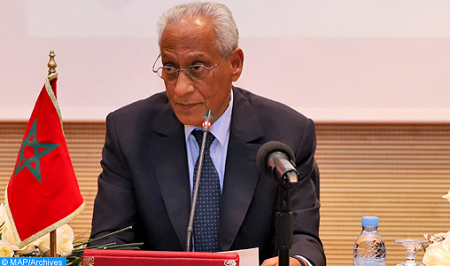Development of National Prison Health Strategy 2022/2026 – Official –
The Delegate General for Prison Administration and Reintegration, Mohamed Salah Tamek, revealed, Wednesday in Rabat, the development of a national health strategy in prisons for the period 2022/2026, aimed at strengthening the health protection of inmates. Developed in collaboration with the Ministry of Health and Social Welfare, with the support of the Global Fund to Fight AIDS, Tuberculosis and Malaria, this strategy aims to strengthen the health protection of prisoners and ensure their access to health care services, explained Tamek during the presentation of the draft budget of the General Delegation of Penitentiary Administration and Reintegration (DGAPR) for the year 2022, before the Committee on Justice, Legislation and Human Rights of the House of Representatives. He added that this strategy, which consolidates the achievements of previous ones, defines the framework for joint action of the Delegation and all stakeholders in the field of health protection of prisoners (Ministry of Health and Welfare, Ministry of Justice, National Council for Human Rights, NGOs and private sector), the objective being to provide appropriate health protection to inmates throughout the period of their incarceration and after their release. Tamek said that this strategy was designed in accordance with international recommendations on health in prisons and national health strategies, including the Health Plan 2025, taking into account international conventions on human rights and the concept of public health. He also stressed the constant commitment of the Delegation to enshrine the approach of human rights in prisons, both through positive interaction with national monitoring mechanisms and international organizations concerned and the related reports, as well as openness to associations and civil society bodies concerned with human rights, in order to solve the daily problems relating to the conditions of prisoners, knowing that the number of partner associations currently amounts to nearly 200. This meeting was an opportunity for Tamek to highlight the main results achieved in humanizing the conditions of incarceration, qualification for reintegration, strengthening security in prisons and developing the institutional capacity of the administration.

